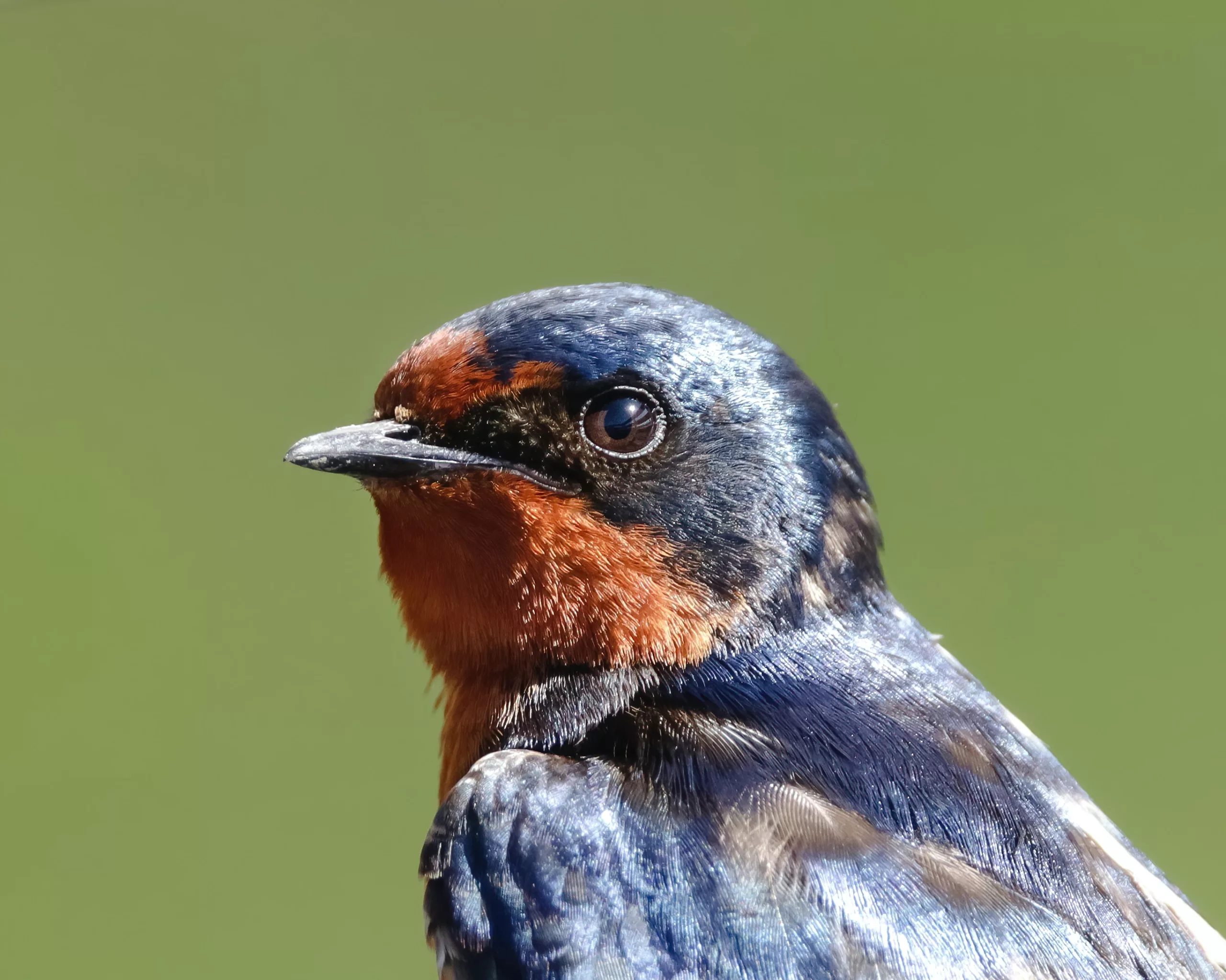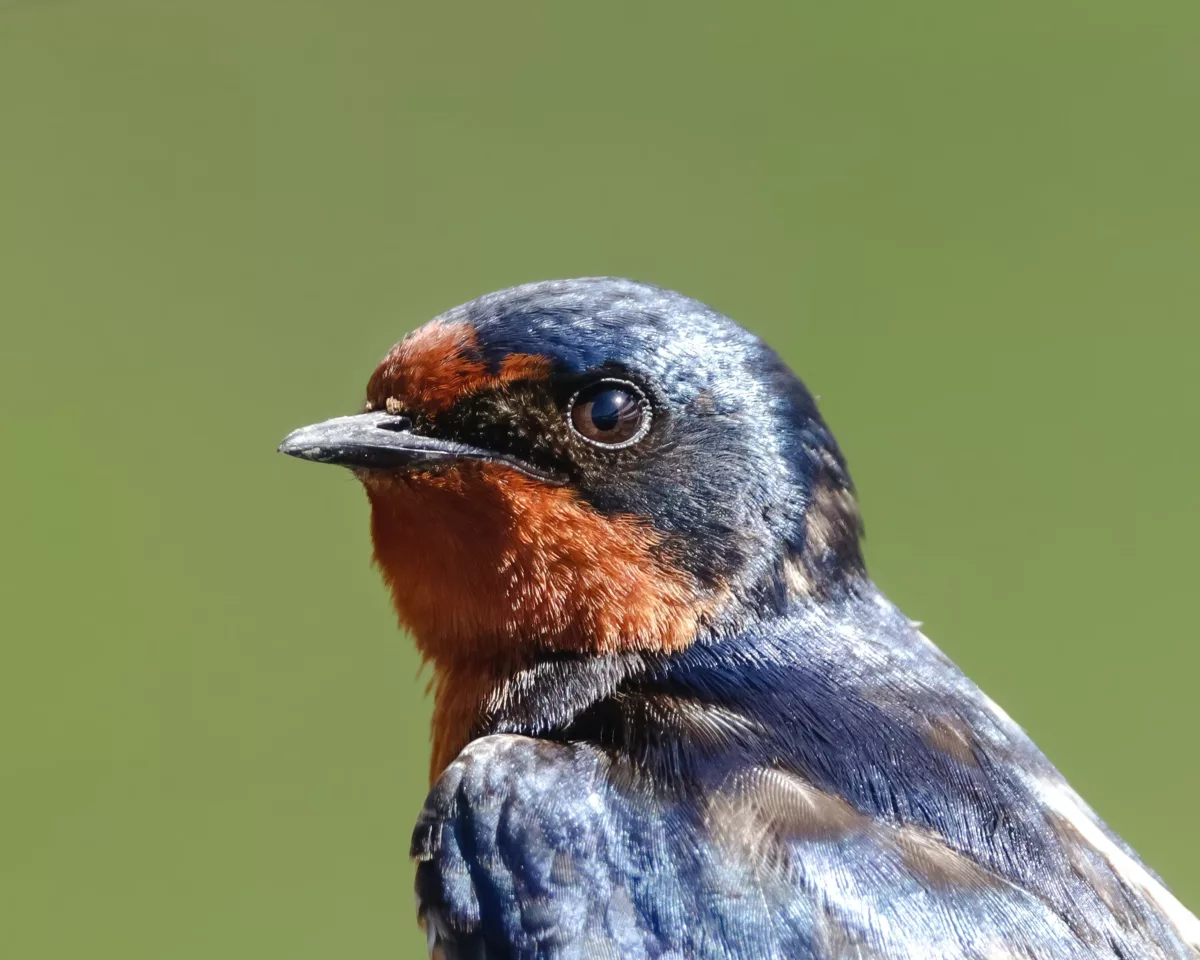Newsletter
Prison Can Be A Hostile Place. Then the Birds Came.
The birds quickly became the talk of the unit. Suddenly, everyone was an ornithologist, claiming to know whether barn swallows were endangered.


Prison Can Be A Hostile Place. Then the Birds Came.
by Christopher Blackwell
Last month, a tiny, colorful barn swallow and her partner began building a nest outside a window at the prison where I am incarcerated. The brightly colored birds worked diligently, assembling their nest one beakful of mud at a time. All the guys in my unit were immediately entranced by the glimpse of nature we so rarely get to experience.
In prison, guys act tough and move carefully within a highly segregated environment. But once those birds planted themselves outside our window, those barriers melted away. The dayroom was packed, with guys from different gangs and races squeezing in together to observe the swallows at work. We watched their every move, pointing, laughing, and yelling like we were close friends. In those moments, we could let our guards down, forget about prison politics, and just be ourselves. I notice moments like these because they are so unusual.
After completing her nest, the mama bird laid four fingernail-sized eggs. The eggs hatched, and the baby birds quickly became the talk of the unit. Suddenly, every guy in prison was an ornithologist, claiming to know whether barn swallows were an endangered species, what kind of food they ate, how long the chicks would take to mature, and a string of other details that seemed at least somewhat believable. I have no idea if any of them knew what they were talking about, but it felt good to see everyone excited about something other than typical prison crap, like lifting weights and card games. Even the toughest guys became consumed by these little creatures. It was impossible not to be—they were adorable.
The baby birds became a treasured part of my daily routine—each morning at 5 a.m. I would make my first cup of freeze-dried coffee and check on the nest. I approached slowly, careful not to upset the mama bird. As you can imagine, she wasn’t exactly thrilled about us looming over her brood. But during these calm, quiet mornings, she sometimes allowed me to get close.
I would count each of the four babies, making sure they had all survived another night. I savored the silence, the time to think. After living in prison for 20 years surrounded by layers of dense razor wire fencing designed to keep us in and everything else out, having this personal connection to nature felt special. For a few minutes, I could feel like a part of something much bigger than the closed world of this penitentiary.
As the chicks grew, we fretted about whether they would all survive. One prisoner was convinced it was only a matter of time until the birds pushed one of the babies out of the nest to make more room. I wondered if that was true. I swore that if it happened, I would raise the baby myself, giving it a home in my cell. How would it learn to fly? That was a problem for later.
We didn’t always agree on what was best for the birds. One time, one of the guys climbed up on the window ledge and tapped on the glass—as if he were a child peering into a fish tank—hoping the babies would lift their heads. This caused chaos. Several prisoners, myself included, got worked up and accused him of disturbing the birds for his own selfish entertainment. He tried to insist he wasn’t bothering them, but the mama bird’s nervous chirps said otherwise. Finally, he left them alone, but he was too prideful to admit he was wrong.
On the morning of July 4, a prisoner on my unit named Dakota Collins quipped the birds were bound to find their independence that day. “It’s destined,” Collins said.
What had started as a joke became a prophecy. By midday, all four babies had left the nest.
“It’s cool that these birds are finding their independence on Independence Day,” Thomas Mullin-Coston, another prisoner in my unit, told me. “It just makes the day—we get a good meal today and our friends are off to start their little lives.”
Although the guys were also sad to see the birds go, we would be the last to begrudge any living being its freedom.
That’s all for this week. As always, feel free to leave us some feedback, and if you want to invest in the future of The Appeal, donate here.
